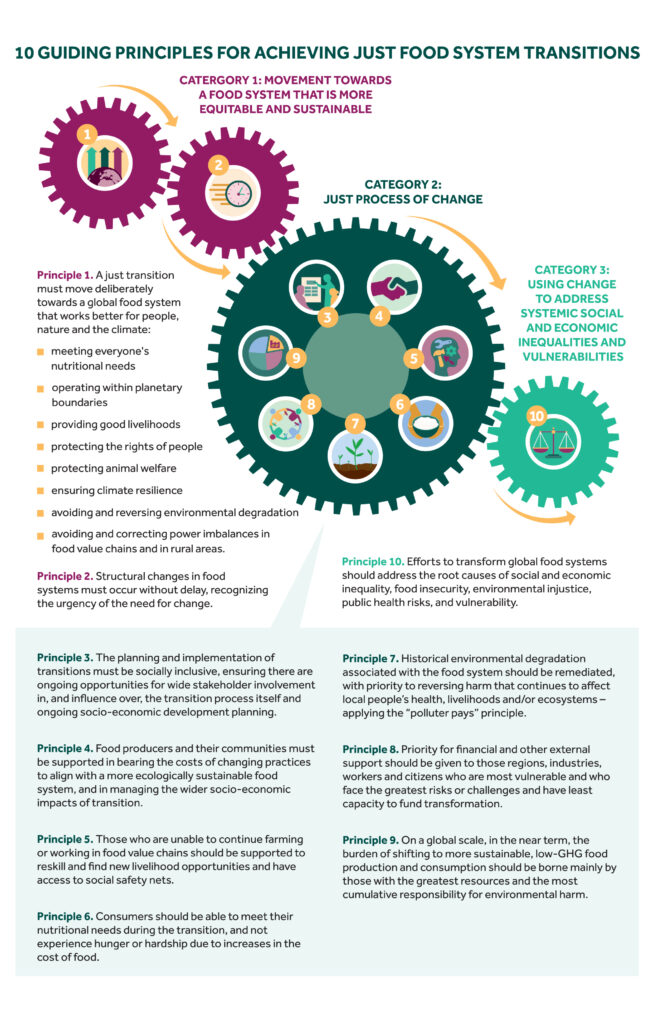Fixing our food systems: New report
17 April 2023Fixing our food systems: New report
Profound changes are needed to ensure that global food systems meet the nutritional needs of a growing global population – and do so in an equitable and environmentally sustainable manner. A new report by the Just Rural Transition initiative (JRT) lays out ten guiding principles for achieving such a transition to equitable, sustainable and resilient food systems. The concept of a ‘just transition’ – moving towards a sustainable world in an equitable way – was referenced in the Paris climate agreement and has mostly been used in discussions regarding the energy sector. However, the primary importance of food systems to both the climate and nature crises mean achieving a just transition for this sector is a matter of urgency, says JRT.
The world’s food systems are under immense strain. The climate crisis, the COVID-19 pandemic and global political instability have all taken their toll. This strain is reflected in rising hunger and malnutrition worldwide. At the same time, agriculture is the largest driver of biodiversity loss and food systems cause around a third of greenhouse gas emissions, a figure that is predicted to rise.
There is an urgent need to transition to food systems that are more resilient and environmentally sustainable. Yet, because food is so essential to human survival, and so many livelihoods depend on food systems, those changes need to be made with great care, to ensure the transition itself is fair and inclusive.
The report from JRT, which is based on a literature review, online consultations and dialogues, interviews and a survey distributed to key stakeholders, lays out ten principles which can form a basis for such a transition. These include managing the impacts of change fairly, ensuring socially inclusive processes, and addressing the root causes of inequality in food systems.
The principles highlight the need to support those who will have to make changes – the farmers and communities who might need technical and financial support to participate in the transition – and those who require new opportunities to re-skill and find new livelihoods.
Such support must start among those regions, industries and people with the greatest challenges and the least capacity to transform, the report says, and the burdens of the transition should be mostly borne by those with the greatest resources who have the most cumulative responsibility for environmental harm.
To work on the ground, these principles will need to be tailored to the local context in which they are being applied, with careful balancing acts to minimize trade-offs and maximize synergies. The best way to ensure success is to meaningfully include all stakeholders in transition planning and implementation, allowing for wide stakeholder involvement and influence, and including the most marginalized voices. A transition like this would provide an opportunity not only to improve sustainable food security for generations to come, but also to tackle the root causes of inequality and vulnerability.
Melissa Pinfield, Executive Director of JRT, said: “These guiding principles aim to further the global discussion on how we equitably transition to food systems that are sustainable, resilient and just, now and for future generations. This is a starting point, not the final word.”
Read the report in full here.

